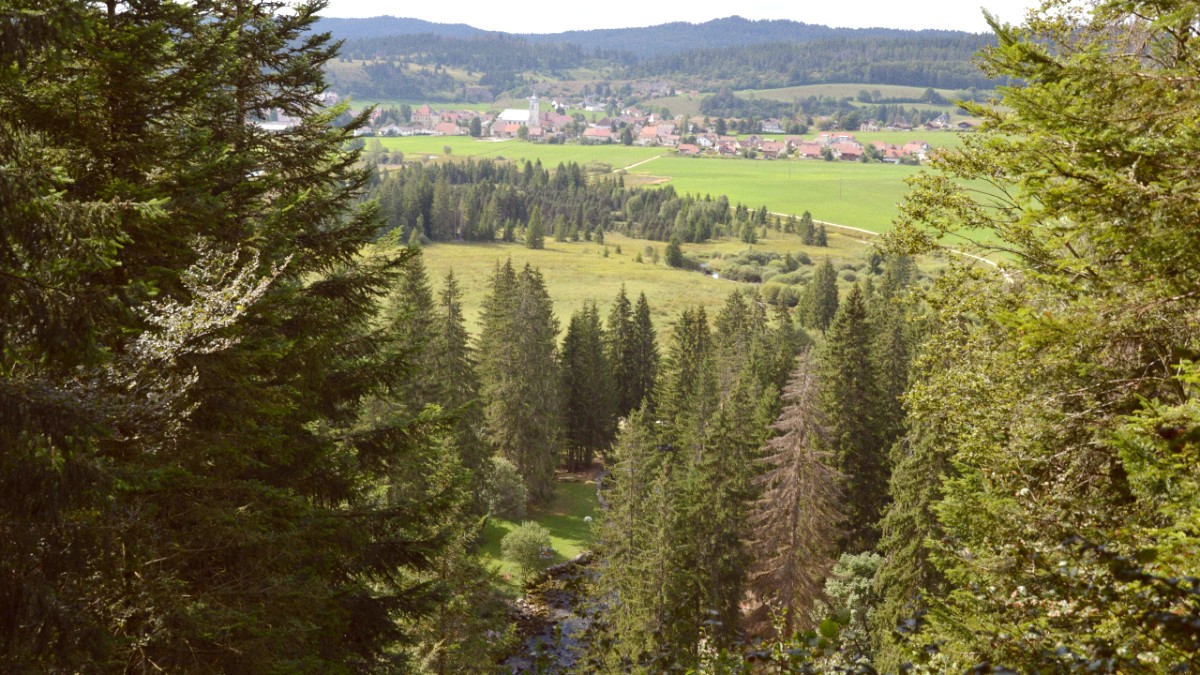
The Jura, France
Besançon experiences four distinct seasons, each offering a different appeal.
Climate patterns throughout the year:
Spring (April-May): Mild temperatures (14-19°C / 57-66°F highs), moderate rainfall. Fresh air. Pack layers.
Summer (June-August): Warmest months (23-26°C / 73-79°F highs), generally sunny, possibility of heatwaves above 30°C (86°F). Long daylight hours.
Autumn (September-October): Cool, crisp temperatures (15-20°C / 59-68°F highs). Increased rainfall but spectacular fall foliage.
Winter (November-March): Cold conditions (5-9°C / 41-48°F highs). Frequent rain, possibility of snow. Quieter experience.
Different activities find their best timing in different seasons.
Hiking & Outdoor Activities: Late spring (May) and early autumn (September-early October) present comfortable temperatures and scenic conditions for trails.
City Sightseeing: Shoulder seasons (April-May, September-October) are ideal for comfortable walking and exploring historical sites, with fewer crowds.
Winter Sports: Visit from December to March for skiing, snowboarding, and cross-country skiing in the nearby Jura mountains.
Cultural Events: Summer months host many festivals and outdoor performances, providing a lively cultural scene.
No visa for stays up to 90 days in 180-day period.
United States, Canada, Australia, United Kingdom, New Zealand, most South American countries.
Visa-exempt non-EU citizens will need ETIAS authorization.
Must obtain a Schengen visa before arrival.
Apply at French embassy/consulate. Share detailed travel plans, proof of funds, hotel bookings.
Start application well in advance; processing times vary.
France is part of this 27-country zone with no internal border control.
Unrestricted movement once inside the zone.
Prepare all documents carefully for smooth entry. Your passport must be valid for at least three months beyond your departure from the Schengen Area and have two blank pages. If a visa is needed, passport-sized photos are required. Be ready to demonstrate financial capacity for your stay through bank statements or credit limits.
Proof of comprehensive travel insurance with minimum coverage (€30,000 for medical emergencies and repatriation) is a frequent requirement for visa applications. Regardless of visa needs, insurance comes highly recommended for all travelers. Immigration officials may ask for proof of a confirmed return or onward ticket. Present hotel bookings or an invitation letter from a host in France to confirm lodging.
Valid 3+ months beyond Schengen departure, 2+ blank pages.
Passport-sized (if visa needed), meet criteria.
Bank statements, credit limits.
Comprehensive medical/repatriation coverage.
Return/onward ticket, hotel bookings/invitation letter.
Understand the financial landscape for your Besançon visit. Prices vary based on your travel style.
The Euro (€) is the official currency. ATMs ("Distributeurs Automatiques de Billets" or "DAB") are widely available, offering a convenient way to get Euros. Major credit cards (Visa, Mastercard) are accepted almost everywhere. Inform your bank of travel plans to avoid card blocking. Travel-friendly cards with low or no foreign transaction fees save money.
Tipping ("pourboire") is not mandatory. French law includes a service charge ("service compris") in restaurant bills. This means the price already includes staff gratuity.
These are general ranges; prices vary based on season, demand, and specific choices.
Your well-being is a top priority. France offers high standards of safety and healthcare, but preparation helps.
No specific vaccinations are required for entry from most Western countries. Ensure routine vaccinations are up-to-date (MMR, Tdap, Polio).
Dehydration/sunburn (summer), seasonal allergies, insect bites. Hydrate, use SPF 50+ sunscreen, wear a Wide-brimmed hat, use Insect repellent.
Tap water is safe to drink. Food hygiene standards are high.
Besançon is generally a safe city for tourists.
Petty crime, like pickpocketing or bag snatching, can occur in crowded tourist areas, on public transport, or at train stations. Be aware of your surroundings, especially in busy places. The city center ("La Boucle") remains safe, even at night. Areas near train stations might be less safe late at night. Do not openly display large amounts of cash or expensive electronics.
Always check local forecasts for specific weather considerations during your visit.
For any emergency service (medical, police, fire).
For medical emergencies.
For crime or public order issues.
Besançon can experience occasional flooding from the Doubs River, especially after heavy rainfall. Local authorities issue warnings if this occurs. Summers can bring heatwaves, so following advice on staying cool and hydrated is wise. In winter, icy roads and heavy snow can occur, specifically in the surrounding Jura region.
France offers high-quality healthcare. Access to medical care is readily available in Besançon.
Marked by a green cross, widely available. Pharmacists offer advice for minor issues; many speak some English.
Besançon has several hospitals, including CHRU Jean Minjoz, providing comprehensive services.
112 (European emergency), 15 (medical), 17 (police), 18 (fire brigade).